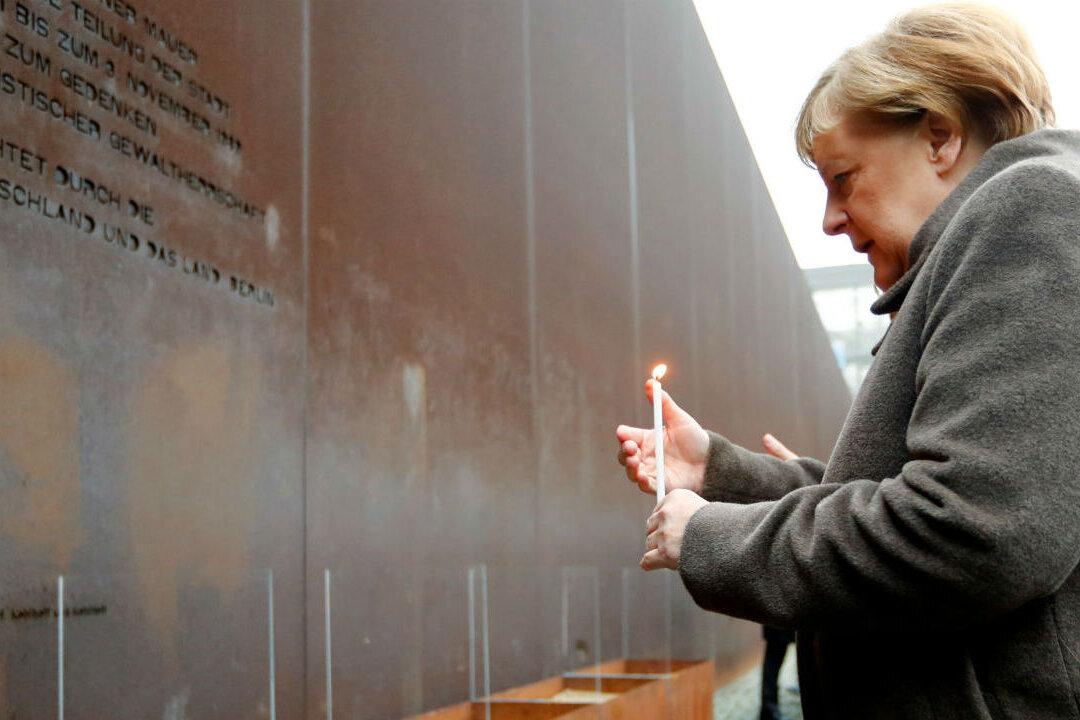Germany’s President Frank-Walter Steinmeier and Chancellor Angela Merkel, joined by the presidents of Poland, Slovakia, the Czech Republic, and Hungary celebrated on Nov. 9 the 30th anniversary of the fall of the Berlin Wall that divided the Communist-ruled East and capitalist West in Berlin.
All leaders attended ceremonies at the Wall memorial site at Bernauer Strasse where one of the last parts of the Berlin Wall was preserved. The leaders and people attending the event placed roses on the once-fearsome barrier that divided the city for 28 years.





